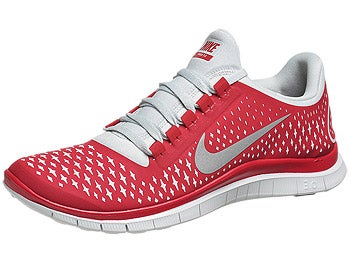- Joined
- Oct 3, 2010
- Messages
- 24,929
- Reaction score
- 3,775
I'd only do it on the treadmill at the gym, Darlaston isn't really a wonderful environment for road running.
I'd only do it on the treadmill at the gym, Darlaston isn't really a wonderful environment for road running.
I've not tried them but i think they're probably closer to a modern running shoe than the barefoot idea, adding something extra in that isn't really needed, although they're adding something in that makes you do a little more rather than something that takes away some of the work.
I think i might buy that book i mentioned and have a read, think the guy that wrote it went and did a lot of running with some native American tribe that do silly amounts of running in nothing more than a primative sandal. The lack of support or anything from the shoe meant they're legs became really strong, they became pretty much immune to injury and there were memebers of the tribe running massive distances well into their senior years, apparently the lack of anything supportive or corrective in the shoe leads to a whole new technique of running which reduces the strain on joints and muscles.


Be very careful with fit flops/ Masai running shoes and barefoot running books. As WH says and plenty of research shows, injury risk is massively increased if not wearing the correct shoes and muscle tone/ usage can cause injury. Be aware that the majority running style of many tribes is toe-heel and not heel-toe which the majority of white European males have. There is all sorts of fatigue issues, shock attenuation and gait analysis that goes into training shoes on the human factors side. Couple this with the advanced materials and new technologies it would be folly to ignore the advice (Nike's budget for new running shoes is over $1Bn) from various running shoe brands and running websites.
I guess its a similar concept to what the physio said to me before about wearing supports after injury, its taking the strain off the muscle or joint so they don't strengthen properly. In extreme cases you might need them at first but its best to steer clear as much as possible and allow your body to naturally do its thing.
